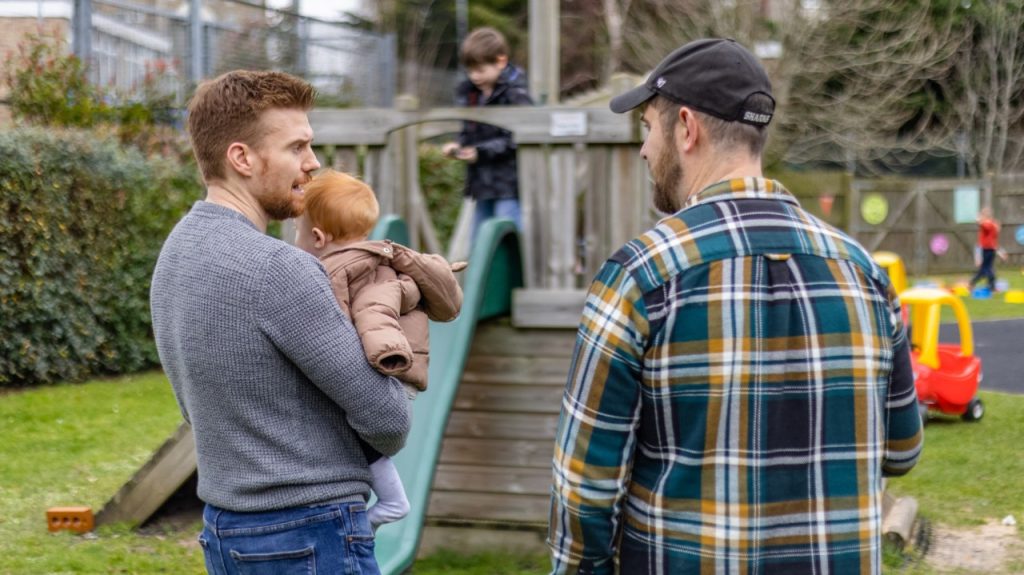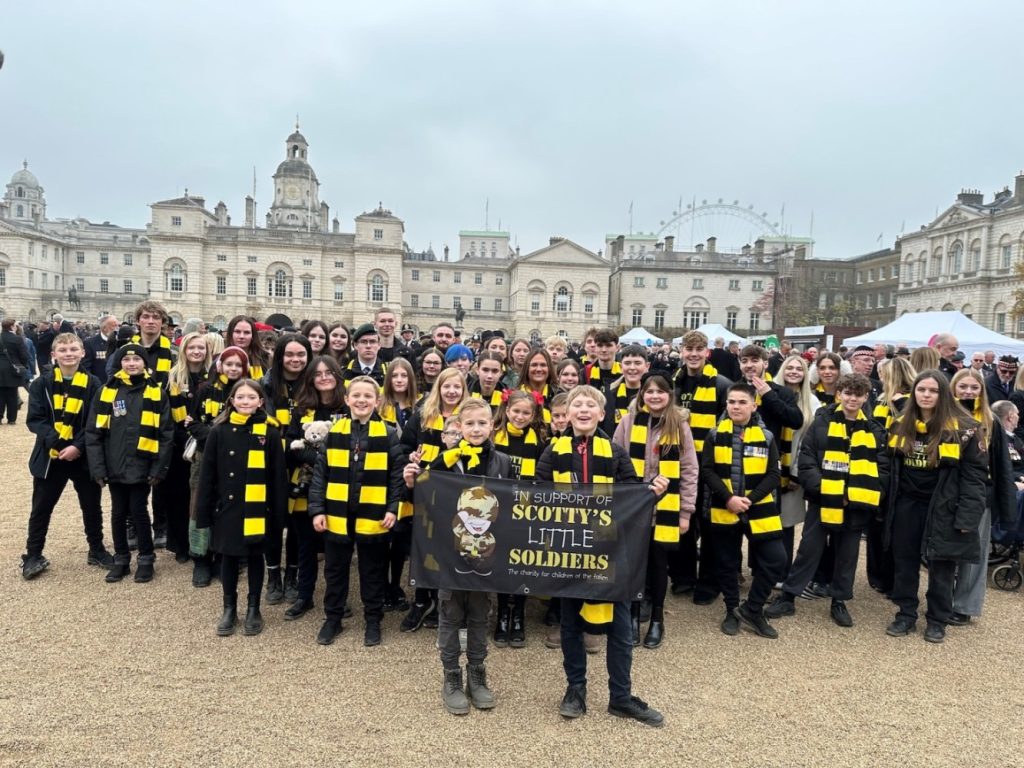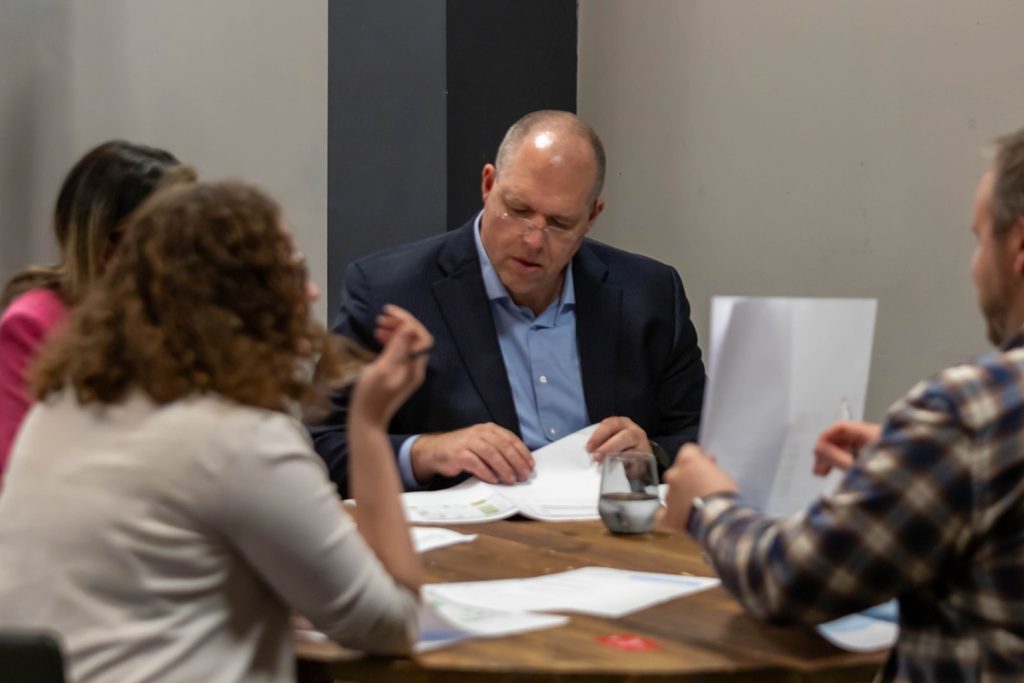If “no man is an island”, where are the bridges?
May is mental Health Awareness Week, and it’s the perfect time to remember that our mental well-being touches every aspect of our lives from our physical health and finances to our relationships and daily routine.
In a new article our CEO, Anna Wright explores how the power of community can help safeguard mental health for everyone.

This year’s Mental Health Awareness Week is all about community – and its role in protecting good mental health for all of us. As the Mental Health Foundation puts it:
“Being part of a safe, positive community is vital for our mental health and wellbeing. We thrive when we have strong connections with other people and supportive communities that remind us, we are not alone. Communities can provide a sense of belonging, safety, support in hard times, and give us a sense of purpose.”
It’s a mission which is right at the heart of what we do at the Armed Forces Covenant Fund Trust – and I’ve been reflecting on four key ways in which community drives our work on mental health for those in and around the armed forces:
- It’s how we know that mental health is a priority for us as a funder:
Our three-year strategy is designed with the armed forces community. In our consultation on our priorities from 2024-2027, we looked at research and policy updates; invited views from everyone who lives and breathes armed forces life and life beyond service, and took part in focus groups and discussions with all three Services and organisations supporting both serving, reservist and veteran communities across the UK. What we heard was really clear: that mental health can be a huge challenge for those in the armed forces community, whether you’re serving, have served or support someone who does. It’s where our three big aims came from – and it’s clear to see how improving mental health is the core outcome across the trio:
- Help veterans with significant mental health needs.
- Reduce loneliness and isolation for armed forces communities
- Reduce stress and challenges for armed forces families.

- It’s the golden thread of the projects we fund on mental health:
In all of the Covenant Fund work we’ve funded – not far off £70m since 2018 – improved mental health is often the core outcome of a project. By spend, it’s one of the outcomes selected most often by applicants to our programmes. And community is the way that outcome is delivered, whether it’s a gardening project bringing veterans together around a shared passion; talking spaces allowing new dads to chat with others about balancing family and service life; peer networks and activities for people working to overcome addiction, suicidal thoughts or PTSD; group activities for families when they’re moving around and trying to build their lives in new places; safe spaces for women to talk about the challenges they’re facing in service life; or a test of different local pathways to help for people experiencing domestic abuse or caring for someone who’s wounded, injured or sick. Key to it all is that creation or expansion of a community: people who understand what you’re going through or want to listen and learn. The communal activities which give all of us a sense of safety, continuity and support are particularly vital for those in the armed forces for whom that sense of community is everything – the projects we fund create that community outside of service, past or present; the mental health improvements are what we see in the outcomes they create.
- It’s the driver of collaboration around a big, gnarly issue:
One of the biggest programmes we’ve enabled – ‘Veterans Pathways, Places and People’, now renamed Thrive Together – is a fantastic example of just how effective the power of community can be.
This HMT-funded initiative has been a catalyst for charity-led communities across the UK since 2021 – bringing together more than 500 organisations and agencies to reach an estimated 17,000 veterans with mental health and wellbeing support. Evaluation shows their work has made it easier for veterans to access the help they need, improving their health and wellbeing and their experiences of accessing help.
Collaboration of communities is the life-blood of that network: it’s where charities can listen to, share intelligence on, understand and prioritise the issues which are putting pressure on mental health for people in their local veteran community. These vary from place to place, and can be really different depending on your age and experiences of life and service.
- It’s something we want to measure – to help share what works:
Most of the projects we fund are tracking the outcomes of their work through the lens of its impacts for mental health. This is a rich source of learning and as a public funder, we want to share what works from the Covenant Fund’s grants as widely as we can. That’s why we commission independent evaluations of our programmes, to better understand what’s changed or been learned.
The charity and community sector has often been described as the ‘fourth emergency service’ – but evidence of its colossal impact and contribution to public health is sometimes hard to gather. That’s why we now ask all projects we fund to use our Impact Hub to track the mental health outcomes of their work – where appropriate – using the ONS4 survey (one of the most simple and straightforward). If 50% of the beneficiaries of Covenant Fund projects in the 24-25 year alone were to answer those four questions about how they’re feeling at the start and end of their engagement with that project, those projects would have a unique and really powerful data story on the mental health impact of relatively modest investments to use in demonstrating their value, seeking future funding, informing potential commissioners and planning future work.
- It’s the way we want to work:
As a small, remote team, we really value our sense of community – and we recognise its power for our mental health. We’ve got our own rhythm for team meetings and huddles, like every remote team does, but it’s more than that: it’s a culture built around the small things: knowing how different people in your work community like to operate, some really strong shared values and using precious together time to focus on what matters: being part of a group, and working on a shared goal. We look to learn from the projects we fund, and the one thing which comes out loud and clear is that community leads the way. It builds those bridges.
Just as the work we fund is about those bridges being strong for everyone in the armed forces community, we also need to make sure we’ve got them within our team and our ways of working. I’m so proud that we have a specialist group of mental health first aiders, who go above and beyond to be there at the times when someone needs a bit more support – and I really understand why ‘community’ is this week’s theme for 2025.
